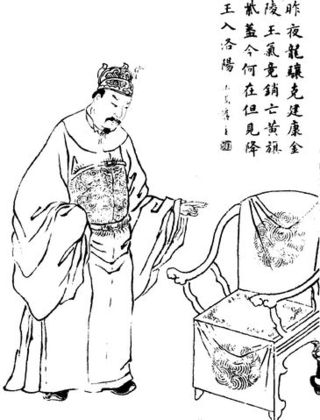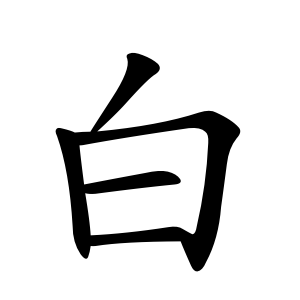Wu Yan may refer to:
- Wu Yan (general) (吾彥; fl. 3rd century), general during the Eastern Wu and Jin periods
- Wu Yan (footballer) (吴龑; born 1989), Chinese footballer
Wu Yan may refer to:

劉 / 刘 is an East Asian surname. pinyin: Liú in Mandarin Chinese, Lau4 in Cantonese. It is the family name of the Han dynasty emperors. The character 劉 originally meant 'battle axe', but is now used only as a surname. It is listed 252nd in the classic text Hundred Family Surnames. Today, it is the 4th most common surname in mainland China as well as one of the most common surnames in the world.

Yan was an ancient Chinese state during the Zhou dynasty. Its capital was Ji. During the Warring States period, the court was also moved to another capital at Xiadu at times.

Emperor Wu of Jin, personal name Sima Yan, courtesy name Anshi (安世), was a grandson of Sima Yi, nephew of Sima Shi and son of Sima Zhao. He became the first emperor of the Jin dynasty after forcing Cao Huan, last emperor of the state of Cao Wei, to abdicate to him. He reigned from 266 to 290, and after conquering the state of Eastern Wu in 280, was the emperor of a reunified China. Emperor Wu was also known for his extravagance and sensuality, especially after the unification of China; legends boasted of his incredible potency among ten thousand concubines.
Sima is a Chinese family name. It is one of the rare two-character Chinese family names; most Chinese family names consist of only a single character. It is an occupational surname, literally meaning "control" (sī) "horses" (mǎ), or "horse officer". The family name originated from one of the offices of the Zhou dynasty.

Emperor Wu of Liang, personal name Xiao Yan (蕭衍), courtesy name Shuda (叔達), childhood name Lian'er (練兒), was the founding emperor of the Chinese Liang dynasty, during the Northern and Southern dynasties period. His reign, until its end, was one of the most stable and prosperous among the Southern dynasties. He came from the same Xiao clan of Lanling (蘭陵蕭氏) that ruled the preceding Southern Qi dynasty, but from a different branch.

The Yan Emperor or the Flame Emperor was a legendary ancient Chinese emperor in pre-dynastic times. Some modern Chinese scholars have identified the Sheep's Head Mountains Weibin District, Baoji as his homeland and territory.

Sun Hao, courtesy name Yuanzong, originally named Sun Pengzu with the courtesy name Haozong, was the fourth and last emperor of the state of Eastern Wu during the Three Kingdoms period of China. He was a son of Sun He, a one-time heir apparent of the founding emperor Sun Quan. He ascended the throne in September 264 after the death of his uncle, Sun Xiu, in light of the desire of the people to have an older emperor, considering the recent destruction of Wu's ally state Shu Han. However, he turned out to be a most unfortunate choice, as his cruelty, extravagance and inability to handle domestic matters doomed Wu, which was eventually conquered by the Jin dynasty in 280, ending the Three Kingdoms period.
Yan is a surname in several languages and the pinyin romanization for several Chinese surnames, including "严 (嚴)", "晏 (晏)", "偃 (偃)", "颜 (顏)", "言 (言)", "燕 (燕)", "阎 (閻)", "闫 (閆)", "鄢 (鄢)" in simplified (traditional) form.
Li Yan may refer to:

Bái is the pinyin of the surname 白, meaning the colour white.
Shi Siming, or Shi Sugan (史窣干), was a Chinese military general, monarch, and politician during the Tang dynasty who followed his childhood friend An Lushan in rebelling against Tang, and who later succeeded An Lushan's son An Qingxu as emperor of the Yan state that An Lushan established.
Zhang Yan may refer to:

The Labour Party is a centre-left social democratic political party in Hong Kong established in 2011.
Zhang Bo or Bo Zhang may refer to:

Zang is the Mandarin pinyin romanization of the Chinese surname written 臧 in Chinese character. It is romanized Tsang in Wade–Giles. It is listed 112th in the Song dynasty classic text Hundred Family Surnames. As of 2008, it is the 241st most common surname in China, shared by 310,000 people, with the province with the most being Shandong.
Lan is the Mandarin pinyin and Wade–Giles romanization of the Chinese surname written 兰 in simplified Chinese and 蘭 in traditional Chinese. As of 2008, it is the 154th most common surname in China, shared by 840,000 people. Lan 蘭 is not listed in the Song dynasty classic text Hundred Family Surnames.
Gan is a surname. It may be a Latin-alphabet spelling of four different Chinese surnames, a Korean surname, and a surname in other cultures.
Jiang is one of the oldest Chinese surnames, being one of the original xing (姓) surnames. It was one of the "Eight Great Xings of High Antiquity", along with Jī (姬), Yáo (姚), Yíng (嬴), Sì (姒), Yún (妘), Guī (媯) and Rèn (妊), though some sources quote Jí (姞) as the last one instead of Rèn. Of these xing, only Jiang and Yao have survived in their original form to modern days as frequently occurring surnames. It is the 32nd surname listed in the Song dynasty-era Hundred Family Surnames poem. It is the 60th most common surname in China (2007), roughly 0.34% of the Han Chinese population. The Lu clan of Fanyang stem from this surname before taking on the Lu (盧) surname. Derivative surnames of Jiang include Zhang, Lü, Qiu, Shen., These originated:
In 2008, pinyin Yán was estimated to be the 75th most common surname in the People's Republic of China, shared by around 3.1 million citizens, making it the most common of the surnames written “Yan” without tone markers.
Wu Yan, courtesy name Shize, was a military general of Eastern Wu during the Three Kingdoms period of China and later for the Jin dynasty (266–420). He is most known for his valiant defence of Jianping during Jin's conquest of Wu. After Wu fell, Wu Yan served in administrative positions under Jin, with his most notable being the Inspector of Jiaozhou, succeeding Tao Huang, who was also a former official of Wu.